
These foods are highly vaalued for the health-giving, disease-preventing properties of the nutrinets they supply.
What is ultimately the most important to good health is a dietary pattern that includes all these foods, along with a wide variety of other nutritious foods and regular physical activity. And don't forget that portion size matters, even when it comes to healthy foods. You can take more liberties when eating simply prepared vegetables, but you should take care to eat other super foods in sensible portions.
Blueberries These contain valuable amounts of fibre, vitamin C, and B vitamis. They aslo contain flavonoids that improve the circulation and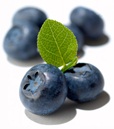 aid the body's defenses agains infection. When you shopping for blueberries or any berry for that matter, just keep in mind that the darker the berry, the more antioxidants it contains. Try snacking on frozen blueberries at work – they are just as good and good for you as fresh ones!
aid the body's defenses agains infection. When you shopping for blueberries or any berry for that matter, just keep in mind that the darker the berry, the more antioxidants it contains. Try snacking on frozen blueberries at work – they are just as good and good for you as fresh ones!
Broccoli This is star ingredient, rich in vitamins and minerals, particularly vitamin C and beta-carotene, as well as folate, 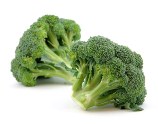 all of wich all of which can protect against cardivascular disease and cancer. So, whenever you decide to nibble on this green super food,you will be fighting cancer, building stronger bones, and reducing your risk for heart disease all at the same time! Broccoli is a spectacular and unique package of versatile disease fighters and abundant in numerous strong, well-known phytochemicals and antioxidants, including indoles, isothiocyanates, quercetin, glutathione, beta carotene, vitaminC, folate, lutein, glucarate, and glutathione. Broccoli is extremely strong in anticancer activity, particularly against lung, colon, and breast cancers. Like other cruciferous vegetables, it speeds up the removal of estrogen from the body, helping suppress breast cancer. Broccoli is rich in cholesterol-reducing fiber and has antiviral and antiulcer activity. It is a super source of chromium that helps regulate insulin and bloodsugar. Broccoli is also a good source of calcium, thus help fight osteoporosis. However, brocoli is one of the leading intestinal gas producers. Heavy cooking and processing destroy some of the anti oxidants and phytochemicals such as indoles and glutathione. Eat raw or lightly cooked as in microwave and stir-fry. To reduce its gas production, eat broccoli with ginger or garlic.
all of wich all of which can protect against cardivascular disease and cancer. So, whenever you decide to nibble on this green super food,you will be fighting cancer, building stronger bones, and reducing your risk for heart disease all at the same time! Broccoli is a spectacular and unique package of versatile disease fighters and abundant in numerous strong, well-known phytochemicals and antioxidants, including indoles, isothiocyanates, quercetin, glutathione, beta carotene, vitaminC, folate, lutein, glucarate, and glutathione. Broccoli is extremely strong in anticancer activity, particularly against lung, colon, and breast cancers. Like other cruciferous vegetables, it speeds up the removal of estrogen from the body, helping suppress breast cancer. Broccoli is rich in cholesterol-reducing fiber and has antiviral and antiulcer activity. It is a super source of chromium that helps regulate insulin and bloodsugar. Broccoli is also a good source of calcium, thus help fight osteoporosis. However, brocoli is one of the leading intestinal gas producers. Heavy cooking and processing destroy some of the anti oxidants and phytochemicals such as indoles and glutathione. Eat raw or lightly cooked as in microwave and stir-fry. To reduce its gas production, eat broccoli with ginger or garlic.
Linseeds Rich in omega-3 fatty acids, which is benefical in treating high blood cholesterol and high blood pressure. Linseeds are the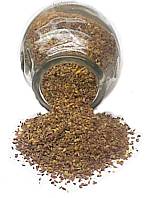 richest plant source of omega 3 fats, which are essential for a healthy brain, heart, joints and immune system.Due to the high content of plant chemicals known as phytoestrogens, linseeds have been called nature's answer to hormone replacement therapy. Phytoestrogens are naturally occurring forms of the female hormone oestrogen and are found in certain foods. They help to either reduce high levels of oestrogens or to boost low levels. This can have a positive impact on the unpleasant effects of the menopause, such as flushing and night sweats. There is ongoing research into the benefits of including phytoestrogens in diets aimed at preventing cancer. With a history of colon cancer in my family I am keen to keep my colon healthy. The high-fibre content of linseeds can help.
richest plant source of omega 3 fats, which are essential for a healthy brain, heart, joints and immune system.Due to the high content of plant chemicals known as phytoestrogens, linseeds have been called nature's answer to hormone replacement therapy. Phytoestrogens are naturally occurring forms of the female hormone oestrogen and are found in certain foods. They help to either reduce high levels of oestrogens or to boost low levels. This can have a positive impact on the unpleasant effects of the menopause, such as flushing and night sweats. There is ongoing research into the benefits of including phytoestrogens in diets aimed at preventing cancer. With a history of colon cancer in my family I am keen to keep my colon healthy. The high-fibre content of linseeds can help.
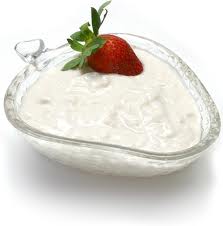 Low-fat yogurt Rich in calcium, which is vital for bone health and protein. Not only do they strengthen your body’s good bacteria, they also help fight off certain cancers! Instead of sour cream or mayonnaise, try using yogurt for tasty dips and spreads! Here's the bad part about yogurt. If you want to get the good stuff - you have to follow some rules. First rule is buy plain, nonfat yogurt. If you have to sweeten it up, use fresh jam, fruit and some granola. But don't buy the sweetened stuff - that won't help.
Low-fat yogurt Rich in calcium, which is vital for bone health and protein. Not only do they strengthen your body’s good bacteria, they also help fight off certain cancers! Instead of sour cream or mayonnaise, try using yogurt for tasty dips and spreads! Here's the bad part about yogurt. If you want to get the good stuff - you have to follow some rules. First rule is buy plain, nonfat yogurt. If you have to sweeten it up, use fresh jam, fruit and some granola. But don't buy the sweetened stuff - that won't help.
Nuts Packed with selenium and vitamin E, nuts can help lower cholesterol levels. Recommended as part of the DASH diet to reduce high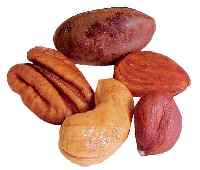 blood pressure. Eating them will drastically reduce your risk for heart disease, diabetes, and cancer. Plus, they will make you feel fuller, faster, which is perfect for healthy snacking! So don’t feel guilty if you like to snack on a spoonful of peanut butter like me. Whether its peanuts, walnuts, cashews, or even peanut butter, snacking on nuts will definitely benefit your health!
blood pressure. Eating them will drastically reduce your risk for heart disease, diabetes, and cancer. Plus, they will make you feel fuller, faster, which is perfect for healthy snacking! So don’t feel guilty if you like to snack on a spoonful of peanut butter like me. Whether its peanuts, walnuts, cashews, or even peanut butter, snacking on nuts will definitely benefit your health!
Oil-rich fish Tuna. salmon, mackerel, and trout are oily fish that are rich in omega-3 fatty acids, which 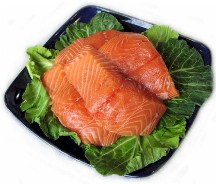 may help control cholesterol levels. It is no wonder why the Inuit of Alaska have remained heart disease free for so many years! Try mixing canned tuna into your salads and dips! Acknowledged in boosting heart health, fish oil has now also been found to contain essential nutrients that prevent inflammatory disorders. Inflammation is a process by which the body’s white blood cells and chemicals protect the body from infection and foreign substances such as bacteria and viruses. The release of chemicals increases the blood flow to the area affected resulting in redness and warmth. Some of the chemicals cause leakage of fluid into the tissues that lead to swelling. The inflammatory process may stimulate nerves and cause pain. Diseases associated with inflammation include some types of arthritis such as rheumatoid arthritis, gouty arthritis, shoulder tendinitis or bursitis, and polymyalgia rheumatica. Fish oil is derived from the tissues of oily fish. This fish oil has been discovered to be rich in essential nutrients called Omega-3 Docosahexaenoic Acid (DHA)/Eicosapentaenoic Acid (EPA), which is naturally needed by the body to absorb essential nutrients and expel unnecessary waste products.
may help control cholesterol levels. It is no wonder why the Inuit of Alaska have remained heart disease free for so many years! Try mixing canned tuna into your salads and dips! Acknowledged in boosting heart health, fish oil has now also been found to contain essential nutrients that prevent inflammatory disorders. Inflammation is a process by which the body’s white blood cells and chemicals protect the body from infection and foreign substances such as bacteria and viruses. The release of chemicals increases the blood flow to the area affected resulting in redness and warmth. Some of the chemicals cause leakage of fluid into the tissues that lead to swelling. The inflammatory process may stimulate nerves and cause pain. Diseases associated with inflammation include some types of arthritis such as rheumatoid arthritis, gouty arthritis, shoulder tendinitis or bursitis, and polymyalgia rheumatica. Fish oil is derived from the tissues of oily fish. This fish oil has been discovered to be rich in essential nutrients called Omega-3 Docosahexaenoic Acid (DHA)/Eicosapentaenoic Acid (EPA), which is naturally needed by the body to absorb essential nutrients and expel unnecessary waste products.
Olive oil An excellent source of healthy monounsaturated fat, which is good for maintaining levels of good cholesterol in the body. These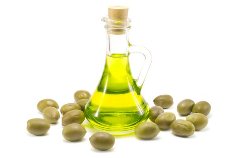 key factors help reduce your risk for heart disease, heart attack, cancer, and diabetes. Olive oil can also help lower and maintain your weight as well as reduce your blood pressure. Try dipping crusty bread into a mixture of olive oil, grated parmesan cheese, dried basil, and dried oregano for a satisfying healthy snack!
key factors help reduce your risk for heart disease, heart attack, cancer, and diabetes. Olive oil can also help lower and maintain your weight as well as reduce your blood pressure. Try dipping crusty bread into a mixture of olive oil, grated parmesan cheese, dried basil, and dried oregano for a satisfying healthy snack!
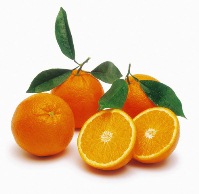 Oranges This fruit is one of the best know sources of vitamin C, which may help prevent free radical damage to the cells and tissues. By snacking on oranges, you will be lowering your cholesterol and high blood pressure. You will also be reducing your risk for certain cancers, boosting your immune system, and fighting off cardiovascular disease! Plus, oranges are delicious to snack on and easy to carry around. They really are the perfect healthy snack!
Oranges This fruit is one of the best know sources of vitamin C, which may help prevent free radical damage to the cells and tissues. By snacking on oranges, you will be lowering your cholesterol and high blood pressure. You will also be reducing your risk for certain cancers, boosting your immune system, and fighting off cardiovascular disease! Plus, oranges are delicious to snack on and easy to carry around. They really are the perfect healthy snack!
Peppers Peppers are a great source of beta-carotene and vitamin C, both of which are antioxidants that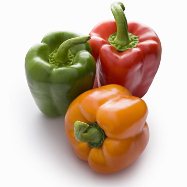 can help ward of cancer. If one feels a cold coming one, indulge in some hot sauce because chiles help boost immunity and clear congestion. Lastly, chile peppers can help one lose weight due to the fact that they temporarily evaluate the metabolism.
can help ward of cancer. If one feels a cold coming one, indulge in some hot sauce because chiles help boost immunity and clear congestion. Lastly, chile peppers can help one lose weight due to the fact that they temporarily evaluate the metabolism.
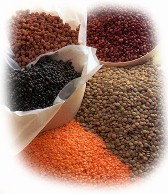 Pulses A significan source of solunle fibre, which can help lower lower cholesterol levels if eating regularly. Puilses are also high in iron, folate and potassium. A cup of cooked peas for example can be packed with fiber and yet very low in glycemic index meaning, the capacity to increase the blood sugar upon ingestion is very low. The combination of these properties provide one an ideal food that can be both filling and nutritious. As a result therefore, one gets to enjoy a food that can less likely contribute to weight gain which we know can lead to more serious chronic illnesses like diabetes, high blood pressure and stroke.
Pulses A significan source of solunle fibre, which can help lower lower cholesterol levels if eating regularly. Puilses are also high in iron, folate and potassium. A cup of cooked peas for example can be packed with fiber and yet very low in glycemic index meaning, the capacity to increase the blood sugar upon ingestion is very low. The combination of these properties provide one an ideal food that can be both filling and nutritious. As a result therefore, one gets to enjoy a food that can less likely contribute to weight gain which we know can lead to more serious chronic illnesses like diabetes, high blood pressure and stroke.
Porridge oats Oats are great source of soluble fibre and can help lower blood cholesterol levels. They are also a useful source of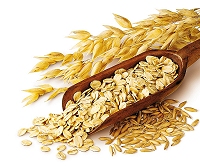 magnesium and zinc. Oats are great for healthy snacking because they are cheap, readily available, and so versatile. For healthy munching, try incorporating oats into your cookies and snack/trail mixes!
magnesium and zinc. Oats are great for healthy snacking because they are cheap, readily available, and so versatile. For healthy munching, try incorporating oats into your cookies and snack/trail mixes!
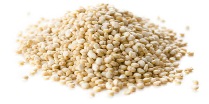 Quinoa Originating in South America, this super grain is part of the traditional Andean diet. It is gluten-free, and high in fibre and protein. Quinoa is rich in magnesium, zinc, vitamin E, and selenium, which help to control weight and reduce the risk of heart disease and diabetes. Studies suggest quinoa is high in antioxidant activity, helping to protect the body from free radical damage. Like other grains, quinoa is rich in lignans, a phytonutrient found to reduce the risk of heart disease as well as certain types of cancer. It has another benefit in that it is an alkaline food. This means that it helps the blood to keep a healthy PH level. This is essential for good health.
Quinoa Originating in South America, this super grain is part of the traditional Andean diet. It is gluten-free, and high in fibre and protein. Quinoa is rich in magnesium, zinc, vitamin E, and selenium, which help to control weight and reduce the risk of heart disease and diabetes. Studies suggest quinoa is high in antioxidant activity, helping to protect the body from free radical damage. Like other grains, quinoa is rich in lignans, a phytonutrient found to reduce the risk of heart disease as well as certain types of cancer. It has another benefit in that it is an alkaline food. This means that it helps the blood to keep a healthy PH level. This is essential for good health.
Red grapes These contain antioxidants that can protect against cancer. Grapes provide vitamin C, vitamin B1 and vitamin B6, but mostly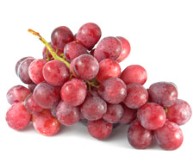 provide pleasure in their juiciness and sweetness. Red grapes also contain powerful phytochemicals (especially phenolics) that may help decrease risk of cardiovascular disease. These phenolic compounds are housed mostly in the skin of the red grapes. Resveratrol, a polyphenolic stilbene found in the skins of red fruits including grapes, may be responsible for some of the health benefits ascribed to the consumption of red wine. Resveratrol has been shown to have anti-oxidant, anticancer, and anti-inflammatory activity.
provide pleasure in their juiciness and sweetness. Red grapes also contain powerful phytochemicals (especially phenolics) that may help decrease risk of cardiovascular disease. These phenolic compounds are housed mostly in the skin of the red grapes. Resveratrol, a polyphenolic stilbene found in the skins of red fruits including grapes, may be responsible for some of the health benefits ascribed to the consumption of red wine. Resveratrol has been shown to have anti-oxidant, anticancer, and anti-inflammatory activity.
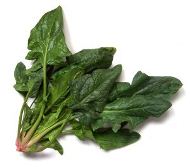 Spinach This folate rich vegetable is also rich in lutein and vitamin E and has antioxidant properties. Spinach is loaded with vitamin A, lutein, and zeaxanthin, which all promote eye health. Spinach is also a great source of iron, antioxidants, and vitamins B, C, and E, making it super beneficial for your heart. Plus, spinach has virtually zero calories so eat as much as you want! For a healthy snack, try adding spinach into your dips or on top of a cheesy hunk of crusty bread. Or, if you’re like Popeye, just swallow a whole can-full!
Spinach This folate rich vegetable is also rich in lutein and vitamin E and has antioxidant properties. Spinach is loaded with vitamin A, lutein, and zeaxanthin, which all promote eye health. Spinach is also a great source of iron, antioxidants, and vitamins B, C, and E, making it super beneficial for your heart. Plus, spinach has virtually zero calories so eat as much as you want! For a healthy snack, try adding spinach into your dips or on top of a cheesy hunk of crusty bread. Or, if you’re like Popeye, just swallow a whole can-full!
Tomatoes Rich in the antioxidant lycopene, tomatoes can help in the fight against cancer. Absorption of lycopene is improved by cooking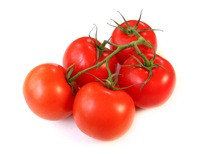 tomatoes in oil. No matter if you eat fresh tomatoes or simple ketchup; you will still enjoy all of the benefits. For a delicious, healthy snack, try making a Caprese salad. Simply arrange tomato and mozzarella slices alternatively with basil leaves. Add salt and pepper and a drizzle of good extra virgin olive oil on top!
tomatoes in oil. No matter if you eat fresh tomatoes or simple ketchup; you will still enjoy all of the benefits. For a delicious, healthy snack, try making a Caprese salad. Simply arrange tomato and mozzarella slices alternatively with basil leaves. Add salt and pepper and a drizzle of good extra virgin olive oil on top!
![]()
Disclaimer: This website is for information purposes only. By providing the information contained herein we are not diagnosing, treating, curing, mitigating, or preventing any type of disease or medical condition. Before beginning any type of natural, integrative or conventional treatment regime, it is advisible to seek the advice of a licensed healthcare professional.



























